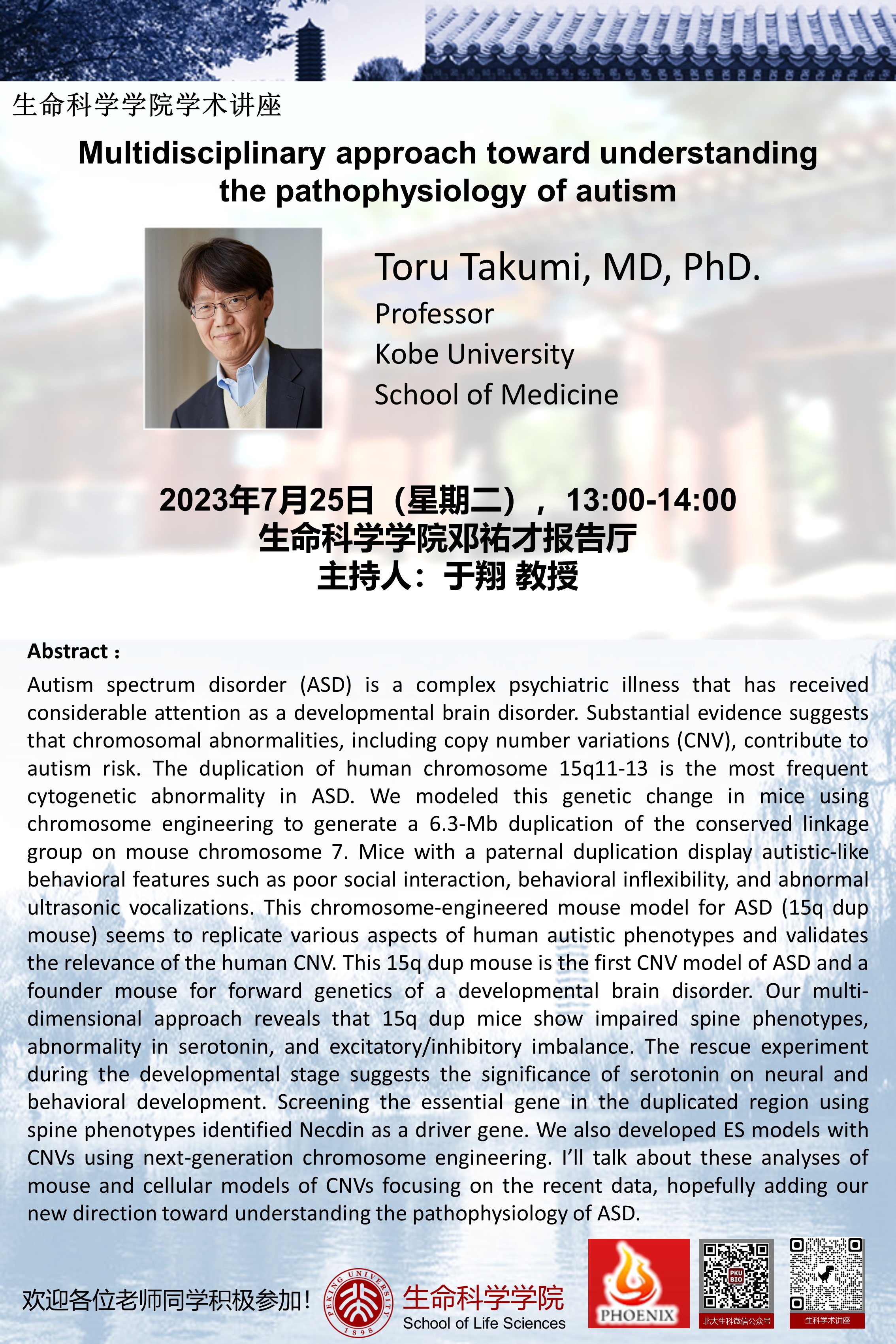Speaker: Toru Takumi, MD, PhD., Professor, Kobe University, School of Medicine
Time: 13:00-14:00 p.m., July 25, 2023, GMT+8
Venue: Dengyoucai Hall, School of Life Sciences
Abstract:
Autism spectrum disorder (ASD) is a complex psychiatric illness that has received considerable attention as a developmental brain disorder. Substantial evidence suggests that chromosomal abnormalities, including copy number variations (CNV), contribute to autism risk. The duplication of human chromosome 15q11-13 is the most frequent cytogenetic abnormality in ASD. We modeled this genetic change in mice using chromosome engineering to generate a 6.3-Mb duplication of the conserved linkagegroup on mouse chromosome 7. Mice with a paternal duplication display autistic-like behavioral features such as poor social interaction, behavioral inflexibility, and abnormal ultrasonic vocalizations. This chromosome-engineered mouse model for ASD (15g dupmouse) seems to replicate various aspects of human autistic phenotypes and validates the relevance of the human CNV. This 15g dup mouse is the first CNV model of ASD and afounder mouse for forward genetics of a developmental brain disorder. Our multi.dimensional approach reveals that 15g dup mice show impaired spine phenotypesabnormality in serotonin, and excitatory/inhibitory imbalance. The rescue experiment during the developmental stage suggests the significance of serotonin on neural andbehavioral development. Screening the essential gene in the duplicated region usingspine phenotypes identified Necdin as a driver gene. We also developed ES models with CNVs using next-generation chromosome engineering. I'll talk about these analyses of mouse and cellular models of CNVs focusing on the recent data, hopefully adding our new direction toward understanding the pathophysiology of ASD.
Source: School of Life Sciences
